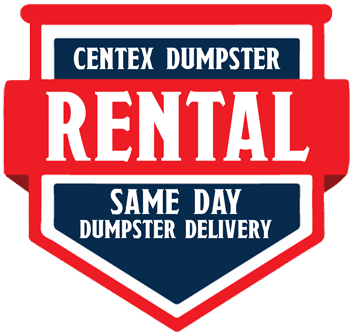Even if you've never used one before, you've probably seen roll-off dumpsters at construction sites, near homes that are being remodeled, and in other places where large amounts of waste are being generated and hauled away. These handy containers can help with a variety of projects, from annual spring cleaning to heavy construction or demolition.
What is a roll-off dumpster?
Roll-off dumpsters are large, wheeled, open-top metal containers that are used to dispose of waste. Typically, they're rectangular in shape and may be front-loaded, top-loaded, or both, depending on the size and construction of the container.
Special roll-off trucks designed to secure the containers and offload waste—typically at a landfill, dump, or recycling facility—transport roll-offs. These trucks deliver roll-off containers when they're rented, either for residential or commercial use, and then pick up filled containers to dispose of the waste.
What are roll-off dumpsters used for?
There are many different uses for roll-off dumpsters. Commercially, construction companies often rent roll-off containers to dispose of debris from demolition or building projects. They can also be used for business cleanouts, remodeling, or changing locations.
Homeowners can also order a roll-off dumpster rental for a variety of reasons. Yard cleanups are a common use for residential roll-off containers. Other home projects where they can be useful include:
Home renovations
Large-scale cleanouts / spring cleaning
When moving to a new home
Landscaping or outdoor construction projects
What sizes are roll-off containers available in?
Roll-off dumpster sizes are typically expressed in cubic yards. The most common sizes available are:
10-yard dumpsters: These small roll-off containers are used for very small home projects and residential remodeling, such as renovating a bathroom
20-yard dumpsters: The more common size is 20 cubic yards, but some roll-off rental companies offer a 15-cubic yard dumpster rental option. This size can accommodate the waste for small home projects, renovations, and yard cleanups.
30-yard dumpsters: This container is a fairly standard size for most home renovation projects. It's large enough to contain debris such as wood and lumber, drywall, and carpeting. Many 30 cubic yard containers are front-loaded as well, making it easier to dispose of heavier materials.
40 yard dumpsters: Typically the largest roll-off size available, this dumpster is used for major construction, renovation, and demolition projects. The container has the same length and width as the 30-cubic yard size, but the walls are eight feet high rather than four-and-a-half feet, as they are with smaller sizes.
It's important to choose the right size roll-off container for your needs. Roll-off dumpster rental companies charge according to the capacity of the container, but there are also load weight limits involved. If your waste is over the weight limit for the container size, you will be charged extra, usually per pound of waste.
Roll-off dumpster rental companies will recommend that you keep the container covered with a tarp while not working. If it rains into an open container, the wet load may put you over the container's weight limit.
What can you (and can't you) throw away with roll-off dumpsters?
Roll-off dumpsters allow you to dispose of most types of waste, including construction debris, yard waste, and regular household waste. It's a good idea to keep weight limits in mind when determining the materials you're going to dispose of-things like rock and concrete don't take up much room, but weigh much more than other types of waste. The larger roll-off containers are better for disposing of heavy materials.
There are also several items that can't be disposed of with roll-off dumpsters. These restrictions comply with the laws and regulations for disposal of hazardous waste. The most common refused items for roll-off containers are:
Most chemicals
Tires and batteries
Electronics
Paint and petroleum products
Other items may also be prohibited. Always check with your dumpster company to find out which materials are not allowed. Otherwise, the driver may refuse to pick up the filled container, or you may be charged additional fees for cleaning and handling contaminated material.
